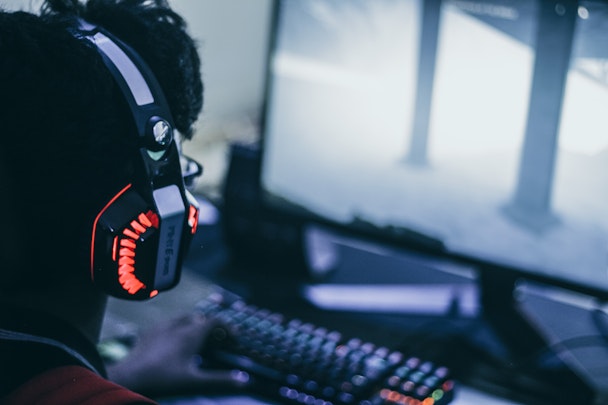Gaming: the next frontier for experiential marketing
Gaming skyrocketed during the pandemic, throwing people a social lifeline at a time of enforced physical isolation. But the surge in esports and MMO (massively multiplayer online games) is delivering a world of social engagement and interaction – and brands are seizing the opportunity.

Lively on why brands will have to level up if they want to enter the gaming industry
In 2020, 5.5 million players logged on and travelled to World of Warcraft’s alternative reality every single day, and the gaming industry’s growth figures are impressive on a number of fronts. It grew 12% to $139.9bn in 2020, with market research company SuperData attributing this to people combating boredom, using games as an escape from the real world, or playing in place of other, unavailable entertainment. Gaming also generated more revenues last year than movies and US sports combined.
Gaming is a natural fit for brand experiences, offering connection, excitement and escape – all underpinned by technology. Brands increasingly see the potential of using gaming as the ‘venue’ for events, creating a space where people can stay connected and share experiences without actually being physically together. As the Covid-19 pandemic demonstrated many times over, live events do not necessarily mean in-person. Moreover, gaming is not location-fixed – it can be accessed from any device, be that mobile, desktop, a tablet or a specific gaming device. It also transcends ages and genders. For the hard-to-reach gen Z, gaming – their go-to place for media and entertainment – is the one place you’re almost certain to find them.
Travis Scott and Fortnite showed us how to mash events with gaming in style, with the rapper’s 10-minute concert inside Fortnite’s Battle Royale game last year gathering together fans in their millions (and that’s without adding the millions more that watched it on streaming platforms).
Game on
Brands need to focus on staying several steps ahead. An in-store or physical activation, for example, can take place within a game, livestreamed through a platform such as Twitch with the game/activation hosting a bespoke exclusive area featuring additional content, engaging users further with the brand.
Lexus hosted a livestream on Twitch earlier this year, where it invited the gaming community to customize its IS sports sedan model. The brand asked them to vote on the interior designs and what gaming add-ons they would like. The ‘gaming’-themed customized car was then unveiled via a second livestream, sporting features such as a gaming PC in the car’s trunk.
California-based shakes and smoothies brand F’real also experimented in the gaming space, staging an in-store activation in March at thousands of stores in the US. Consumers could scan a QR code that opened up a mobile game where they had to dodge obstacles; this game was promoted on TikTok, where various creators challenged their followers to beat their score, while an event promoting the campaign was livestreamed on Twitch. This demonstrates the extent to which people can stay connected at an event, despite being in different locations and even experiencing different aspects of an event.
Opportunity knocks
With open world gaming, you can see just how easily gaming can expand into storytelling and entertainment and, equally, the potential this offers to brand experiences. With gamers having free rein to explore virtual worlds, taking on side missions or extra quests along the way and effectively controlling their own gaming journey, it’s easy to lose yourself completely in a world of endless adventures.
Brands are beginning to use this format to enable participants to unlock secret areas, where they can enjoy exclusive pop-ups, additional content or purchase exclusive items. As they move through this open world of gaming, consumers and gamers can curate their own experiential journey. It’s not so far removed from those ‘choose your own adventure’ storybooks, hugely popular in the 1980s, where you took on the role of the protagonist and you could choose your own fate by turning to this page or that page.
Fortnite has tapped into this potential, with its recently-announced partnership with Universal Music and London’s The O2 venue. The experience, hosted within Fornite Creative, featured music from Leicester band Easy Life, and was set in a virtual version of the O2 building which gamers could explore, discovering hidden rooms and backstage areas. They could also complete challenges to unlock exclusive in-game rewards.
The one thing to bear in mind, however, is that the gaming community will be quick to spot any half-hearted attempt that merely disrupts rather than engages. If, as a brand, you’re game for exploring what gaming can do for experiences, you’ll have to do more than level up.
Mike White is chief executive officer and co-founder at Lively.
Content by The Drum Network member:

LIVELY WORLDWIDE LLC
We create without constraints.
Our work sits at the intersection of creativity and technology.
With one eye on the data and another on the future,...

